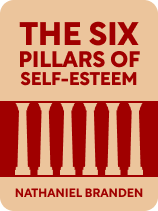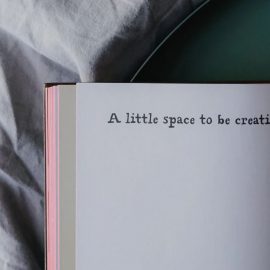

This article is an excerpt from the Shortform book guide to "The Six Pillars of Self-Esteem" by Nathaniel Branden. Shortform has the world's best summaries and analyses of books you should be reading.
Like this article? Sign up for a free trial here .
What does it mean to live purposefully or intentionally? Do you think you’re living intentionally, or are you just floating through life without direction?
According to psychotherapist Nathaniel Branden, when you live with intention, you don’t just react to what happens. You proactively decide what your goals are, create plans to achieve them, and then implement those plans.
Here’s how to live with intention.
Why Living Intentionally Matters
According to Branden, living intentionally improves your confidence in your capability—and thus your self-esteem. He contends that we develop this confidence through the process of achieving specific goals, not the achievement itself: If you win a race, your confidence rises not because you won but because you were able to create and follow a winning training plan.
Since confidence comes from the process of succeeding and not from the success itself, you can develop confidence in your capability even if you don’t succeed. Understanding this may prevent you from using external achievements as the main source of your self-esteem—which Branden warns against, especially the use of professional achievements. So much of your professional success is out of your control: For example, you may be fired if your company loses money. So if you derive self-esteem from your professional success, you risk letting setbacks you can’t control diminish not only your financial standing but also your self-worth.
With this in mind, here are the key signs you are living with intention as opposed to just floating through life without direction.
1. You live productively. In other words, you earn your keep by actualizing your thoughts, setting and pursuing goals, and creating things that support your existence. The amount you produce is irrelevant—as long as you’re trying to be productive. (Shortform note: How do you live productively after retirement? One way is to view your retirement as an opportunity to implement your legacy, as this would still involve actualizing your goals.)
2. You know what you want long-term in your personal and professional life—or you’re trying to figure it out. You can only steer your life appropriately if you know where you want to go. (Shortform note: Once you know what you want, follow Ego is the Enemy author Ryan Holiday’s advice: Work toward your goals instead of talking about working toward them. Holiday warns that the latter is a form of procrastination that replaces the time you should spend working with time spent talking.)
3. You practice self-discipline. You can ignore your immediate desires that conflict with your long-term goals. But you’re also capable of living in the present when it’s appropriate. For example, you skip most bar hangouts to study for your graduate school admission test, but you go when it’s your best friend’s birthday, and you don’t bring your flashcards. (Shortform note: In The Willpower Instinct, health psychologist Kelly McGonigal suggests combating unhealthy desires by slowing down your breathing. This turns on your pause-and-plan response, which protects you from making impulsive decisions that are bad for you.)
4. You know how you’ll get what you want. You have specific plans to achieve specific goals. (Shortform note: In Smarter Faster Better, Charles Duhigg recommends setting SMART goals: Your goals should be Specific, Measurable, Achievable, Realistic, and Timely.)
5. You know whether your behavior supports your goals because you regularly check whether you’re behaving according to your plan. If not, you adjust your behavior or your purpose. (Shortform note: In Atomic Habits, Clear suggests an easy way to determine whether your behavior supports your goals: Create a habit tracker, which is a visual representation of your progress toward each goal.)
6. You pay attention to real-world feedback and adjust accordingly because you know that following your initial plan doesn’t always work. For example, your actions may have unintended negative consequences that detract from your ultimate goal. (Shortform note: To adjust your plan effectively, investor and Principles author Ray Dalio recommends thinking about everything that led to the problem and writing down specific tasks and timelines to solve it. He also recommends considering the second- and third-order consequences of any change; doing so may help you avoid further unintended consequences.)
Exercises to Facilitate Living Intentionally
If you want to know how to live with intention, Branden recommends creating and answering several sentence stems that address questions like the ones listed below. Branden doesn’t provide a specific timeline during which you should complete these sentence stems.
- What does living intentionally mean to you?
- What would happen if you behaved more intentionally at work and with your colleagues?
- What would happen if you behaved more intentionally with your family?
- What would happen if you were more intentional about prioritizing what you want and need?
- What might be helpful if anything you wrote was true?
(Shortform note: Another way to improve how intentionally you live is to build routines, as Hardy recommends in The Compound Effect. He argues that setting daily, weekly, and monthly routines helps you get into a rhythm that makes following new habits even easier.)

———End of Preview———
Like what you just read? Read the rest of the world's best book summary and analysis of Nathaniel Branden's "The Six Pillars of Self-Esteem" at Shortform .
Here's what you'll find in our full The Six Pillars of Self-Esteem summary :
- Exactly how to behave to improve your self-esteem
- Why you need to take responsibility for your life and actions
- Why so many self-esteem techniques don't work






